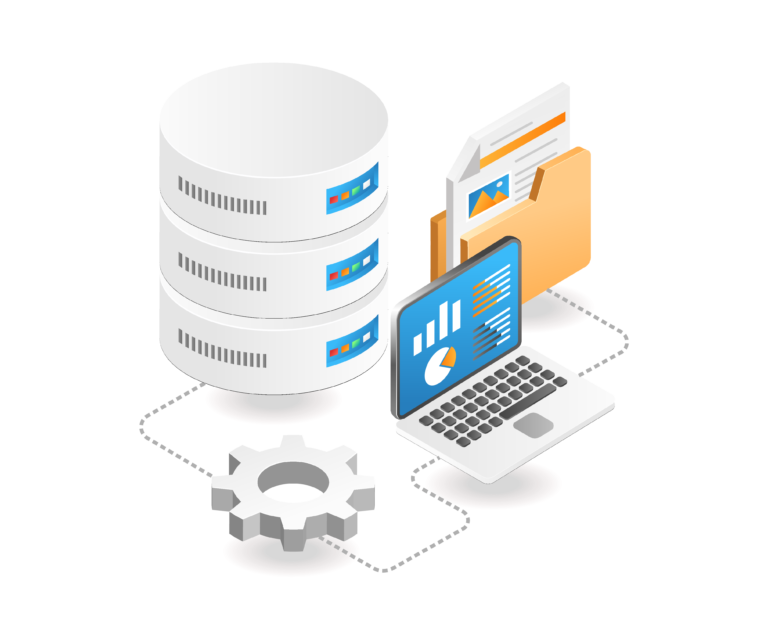
Relational Databases Powering Small Businesses: Embracing the GenAI Revolution
By Professor DeLeon | Published: May 16, 2025
Introduction
In today’s digital landscape, small businesses face unprecedented challenges and opportunities. At the heart of every successful small business operation lies a critical component that often goes unnoticed: the humble relational database. These powerful data management systems have been the backbone of business operations for decades, but they’re undergoing a revolutionary transformation as generative AI technologies emerge and reshape what’s possible.
As a small business owner or manager, understanding how modern relational databases can transform your operations isn’t just a technical consideration—it’s a strategic imperative that could define your competitive advantage in the coming years.
The Enduring Power of Relational Databases for Small Businesses
Before diving into cutting-edge innovations, let’s remember why relational databases remain fundamental to small business success:
Data Integrity and Structure: Relational databases excel at maintaining the accuracy and consistency of your business data through constraints, relationships, and normalization principles.
Scalability: As your business grows from a few dozen to thousands of customers, relational databases can scale accordingly, handling increasing transaction volumes without sacrificing performance.
Security Features: Built-in user permissions, encryption options, and other security features protect your most sensitive business data from unauthorized access.
ACID Compliance: The principles of Atomicity, Consistency, Isolation, and Durability ensure that your business transactions are processed reliably even during system failures.
The GenAI Database Revolution: What’s Changing in 2025
The integration of generative AI with relational databases is creating unprecedented capabilities for small businesses. Here are the transformative trends reshaping the landscape:
1. Natural Language Queries Transform Data Access
Remember when accessing your business data required SQL knowledge or predefined reports? Those days are rapidly fading.
Modern relational database systems now incorporate natural language interfaces powered by large language models (LLMs), allowing anyone in your organization to simply ask questions in plain English and receive accurate data responses:
- “Show me our top 10 customers by revenue this quarter compared to last year”
- “Which products have inventory levels below reorder thresholds?”
- “What were our marketing expenses by channel with the highest ROI?”
This democratization of data access eliminates technical barriers, enabling every employee to make data-driven decisions without specialized training.
2. Predictive Analytics Becomes Accessible
Traditionally, predictive capabilities required data scientists and complex statistical models. Today’s AI-enhanced databases are changing that equation dramatically.
Modern relational database systems now offer integrated predictive capabilities that can:
- Forecast inventory needs based on historical sales data and seasonal patterns
- Predict customer churn probability with sufficient advance notice for intervention
- Identify potential cross-selling opportunities based on purchase patterns
- Optimize pricing strategies based on demand elasticity models
These capabilities are increasingly being packaged as user-friendly features rather than complex data science projects, putting advanced analytics within reach of even the smallest businesses.
3. Automatic Data Enhancement and Enrichment
GenAI is revolutionizing how databases handle incomplete or imperfect data:
Intelligent Data Cleaning: AI algorithms can now detect anomalies, correct common errors, and standardize inconsistent entries automatically.
Contextual Enrichment: Modern databases can automatically augment your existing data with relevant external information—for example, adding demographic data to customer records or enriching product descriptions.
Entity Resolution: Advanced matching algorithms can identify when different records likely refer to the same customer or business entity, reducing duplications and creating unified views.
4. Conversational Database Interfaces
The database administration experience is being transformed by AI assistants that understand context and intent:
Database Co-pilots: Similar to coding co-pilots, these tools help database administrators and developers by suggesting optimizations, identifying potential issues, and even generating complex SQL queries based on conversation.
Self-Optimizing Systems: AI-powered database systems can now monitor workload patterns and automatically adjust configuration parameters, index strategies, and resource allocation without human intervention.
Proactive Maintenance: Modern database systems can predict potential failures or performance issues before they impact your business operations.
Practical Implementation Strategies for Small Businesses
How can your small business leverage these advancements without enterprise-level resources? Here are practical approaches:
Start with Modern Cloud Database Services
Cloud providers now offer relational database services with built-in AI capabilities:
- Amazon Aurora with Bedrock integration
- Google CloudSQL with Gemini features
- Microsoft Azure SQL with Copilot
These services provide AI-enhanced capabilities with consumption-based pricing models, making them accessible to small businesses without large upfront investments.
Implement in High-Value Areas First
Rather than completely overhauling your database infrastructure, identify specific areas where AI enhancements can deliver immediate value:
- Customer service data analysis to identify satisfaction trends
- Inventory management optimization to reduce carrying costs
- Marketing campaign analysis to improve targeting and ROI
- Financial forecasting to improve cash flow management
Consider Database-as-a-Service (DBaaS) Options with AI Features
Several specialized providers now offer fully-managed database services with embedded AI capabilities:
- Managed PostgreSQL with AI extensions
- MySQL services with integrated prediction APIs
- Specialized vertical solutions for retail, service businesses, or manufacturing
These options allow small businesses to leverage advanced capabilities without maintaining specialized database administration expertise in-house.
Real-World Impact: Small Business Success Stories
Case Study 1: Local Retail Chain
A regional retail chain with seven locations implemented an AI-enhanced inventory management system based on PostgreSQL with custom GenAI extensions. The results were dramatic:
- 27% reduction in inventory carrying costs
- 35% decrease in stockout incidents
- 18% improvement in overall profit margins
The system’s natural language interface allowed store managers to query inventory data directly without IT assistance, dramatically increasing adoption and data-driven decision making throughout the organization.
Case Study 2: Professional Services Firm
A growing accounting practice deployed a modern relational database with AI-powered client analytics. The system’s predictive capabilities helped identify clients likely to need additional services, resulting in:
- 23% increase in services per client
- 15% improvement in client retention
- 31% reduction in administrative workload
By automating routine data entry and enrichment tasks, staff could focus more time on high-value client interactions.
Looking Ahead: What’s Next for Small Business Databases
The integration of generative AI with relational databases is still in its early stages. Here’s what small business owners should watch for:
Multi-modal Data Integration: Future database systems will seamlessly integrate structured data with unstructured content like documents, images, and audio recordings.
Synthetic Data Generation: AI can create realistic but non-sensitive test data, helping small businesses develop new features and applications without risking actual customer information.
Intelligent Compliance Assistance: Emerging database features will help small businesses navigate complex data protection regulations by automatically identifying sensitive data and suggesting appropriate security measures.
Embedded Domain Knowledge: Next-generation databases will incorporate industry-specific knowledge, providing contextually relevant insights for your particular business sector.
Conclusion: The Competitive Advantage of Database Innovation
For small businesses, modern relational databases enhanced by generative AI represent an opportunity to level the playing field with larger competitors. The organizations that embrace these technologies early will gain significant advantages in operational efficiency, customer insights, and decision-making agility.
The good news is that these capabilities are becoming increasingly accessible through cloud services and specialized providers, requiring less technical expertise and upfront investment than ever before.
The question isn’t whether your small business will adopt AI-enhanced database technologies, but when and how strategically you’ll implement them to maximize competitive advantage.
